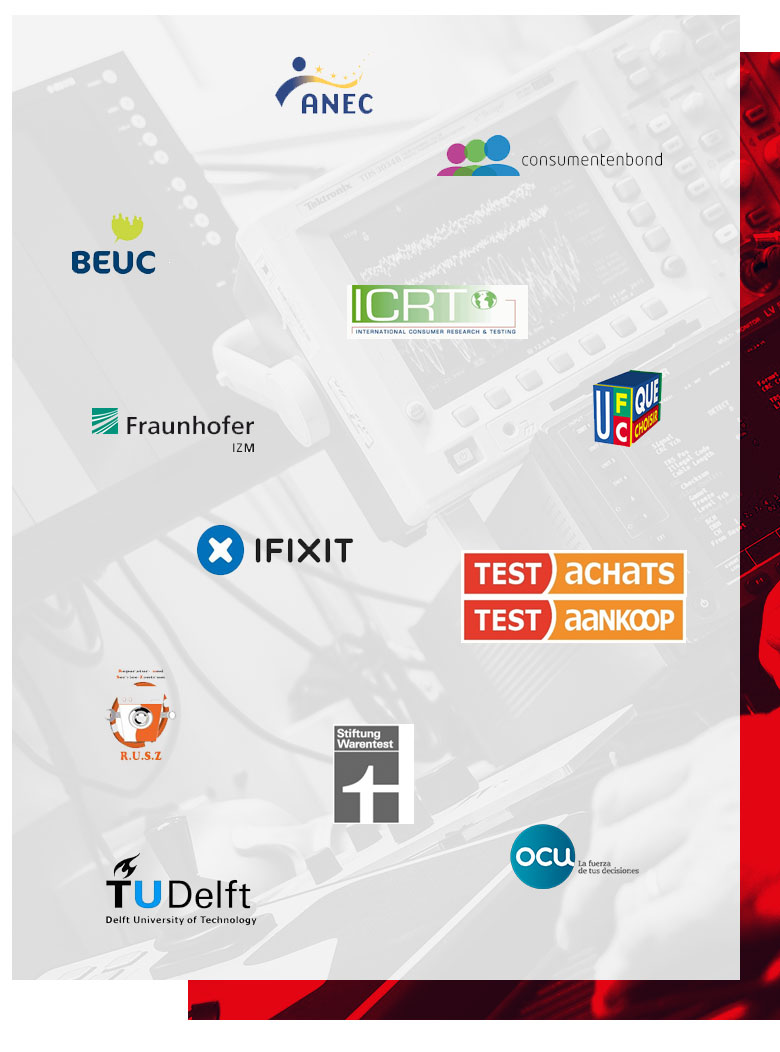PROMPT
Waste from electrical and electronic equipment (WEEE) has become one of the fastest growing waste streams in the EU. Lengthening products lifetime can help reduce this waste. The PROMPT project, a H2020 project funded by the European Commission, aims to tackle this issue by preventing premature obsolescence.
The PROMPT (PRemature Obsolescence independent Multi-stakeholder Product Testing programme) project aims to develop an independent testing programme assessing the lifetime of consumer products. It has the ambition to help extending the useful lifetime of products and to contribute to the transition to a circular economy. The project is a cooperation between Fraunhofer IZM, TUD, several international consumer associations (Belgium, France, Germany, The Netherlands, Spain) and repair experts (iFixit and R.U.S.Z.). PROMPT aims at boosting durable design, providing access to repair services, upgrades and disassembly options.
The role of Industrial Design Engineering, TU Delft within PROMPT is distributed in two research areas addressing both the technological and non-technological aspects of premature obsolescence.
Sagar Dangal, Jeremy Faludi and Ruud Balkenende are involved in the evaluation of design for repair, durability and reuse. They focus on understanding and evaluating design features that hamper or facilitate longevity of products. Through this, design guidelines for longer lasting products and how they can be translated towards a testing programme will be studied.
Renske van den Berge, Lise Magnier and Ruth Mugge investigate how users’ behaviours and market-related factors (e.g., marketing efforts, introduction of new technologies, repair policies) influence early replacement of products. They also focus on developing strategies that can help stimulate product retention. Eventually, their findings will be translated into testable criteria of premature obsolescence.
Lise Magnier
- +31(0) 15 278 1729
- l.b.m.magnier@tudelft.nl
-
Room B-4-100
"Follow your heart but take your brain with you."

Ruud Balkenende
- +31 15 27 81658
- a.r.balkenende@tudelft.nl
-
Room B-3-310

Jeremy Faludi
- +31 (0)15 278 98 07
- J.Faludi@tudelft.nl
- faludidesign.com
-
Room 32-B-3-320
Present on: Mon-Tue-Wed-Thu-Fri
"To get the future you want, start building now."





